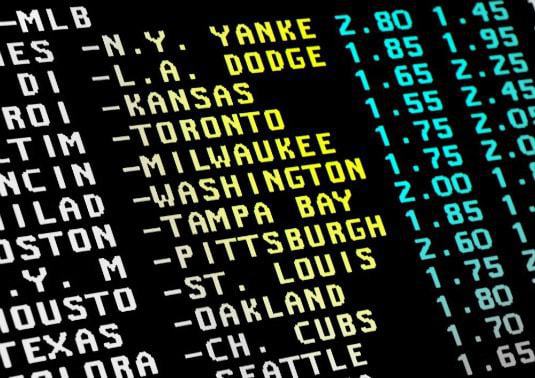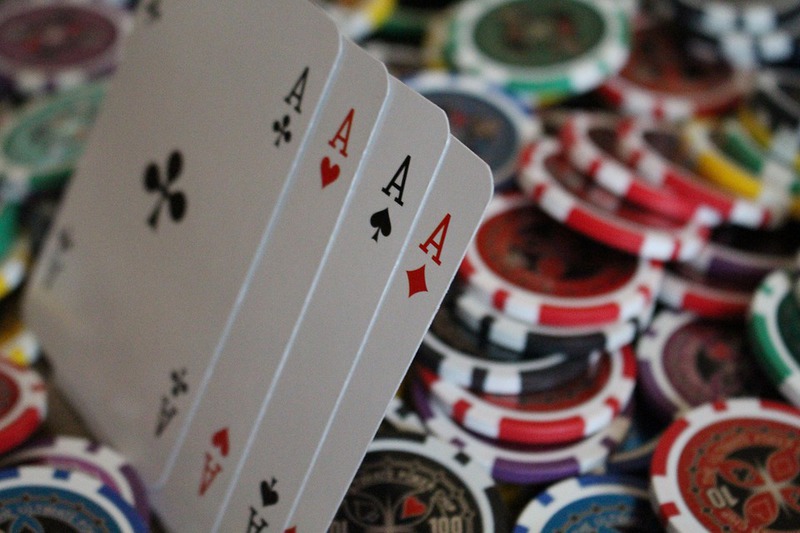






Supreme Court To Determine Future Of Massive U.S. Sports Betting MarketHigh Court To Hear Oral Arguments In Christie v. NCAA |
|
|

On Monday, the highest court in the land will hear oral arguments for why the Professional and Amateur Sports Protection Act of 1992 is unconstitutional. It could be a game-changer for the gaming industry and the world of sports in America.
The case has been years in the making. In 2012, New Jersey began trying to put sports books at its Atlantic City casinos, efforts that involved an attempt to circumvent federal law. The major sports leagues and the NCAA sued to block the implementation of a New Jersey sports betting industry, and after a series of lower court rulings, the U.S. Supreme Court in June agreed to hear the case. The decision to simply consider it came as a surprise to many.
A ruling from the Justices is expected by June of next year. It could be the first Supreme Court decision since the 1990s to strike down an act of Congress for violating the 10th Amendment under what is known as the anti-commandeering doctrine.
In the meantime, more than a dozen states have begun discussing whether or not to allow sports betting within their respective borders. A favorable decision from the Supreme Court would permit states to pass their own laws to legalize and regulate the activity. There also have been efforts on Capitol Hill to legalize sports betting. The sports leagues want Congress to tackle sports betting, which could happen if the PASPA court challenge loses or there’s a muddled ruling.
A short history of PASPA
On Oct. 28, 1992, then President George H.W. Bush signed Senate Bill 474, legislation that is commonly referred to as PASPA. The bill had overwhelmingly cleared the Senate before hitting the president’s desk. At the time, the leagues and lawmakers believed sports betting to be a national problem. The legislation banned sports betting in states where it wasn’t already occurring.
A Gallup poll from 1993 showed that a majority of Americans at the time disapproved of making sports betting legal. The majority approves of the idea these days.
For about a quarter century, PASPA has forced all but a handful of states to continue prohibiting sports betting as a matter of state law, as well as enforce those prohibitions using state resources.
Nevada and its sports books were safe, and so were the sports lotteries in Oregon, Delaware and Montana. They were all grandfathered in, an opportunity other states had for one year after the bill went into effect. New Jersey, which has had casinos since 1978, failed to join in. Over two decades later, the Garden State wants another shot.
At the time that PASPA became law, sports betting revenue in Nevada was only about 20 of the current level, and at the time represented well under one percent of total gambling win.
 Atlantic City’s free fall
Atlantic City’s free fall
While the sports betting case will affect casino states across the country, the role Atlantic City’s collapse has played in the saga shouldn’t be diminished.
Outgoing Gov. Christie has long pledged to help the struggling seaside gambling town that lost a third of its brick-and-mortar casinos in 2014, and another last year. Gambling revenue in what was once the nation’s second-largest casino market reached an all-time high of $5.2 billion in 2006, only to be halved over the next decade. Beefed-up gambling industries in the region took a bite out of Atlantic City’s winnings and prevented it from recovering from the Great Recession.
Online gambling was a lifeline for Atlantic City, and it’s credited with stopping the bleeding. Gaming win inched up in 2016 and was up 1.5 percent through the first ninth months of this year. The Garden State is expected to allow sports wagering over the internet should it emerge victorious from the Supreme Court case.
 The sports betting market
The sports betting market
The American Gaming Association estimates that about $150 billion is bet on sports each year, with nearly all of it happening through illicit channels. Nevada, the only state with sports books, saw a record $4.5 billion in sports wagers last year. The books retained $219 million of the handle in the form of revenue. Nevada allows sports betting on mobile devices, a form of internet gambling.
The booming Nevada sports betting market shows no signs of slowing. This past September saw a new record for sports bets in a single month. Gamblers there wagered a whopping $558.2 million.
But the black market dominates for now. Research group Eilers & Krejcik Gaming estimates that Americans bet as much as $60 billion each year on offshore, unregulated gambling sites. The group said that if all casino states rolled out regulated sports betting, the revenue from the wagers could be worth more than $15 billion. However, that would be years down the road.
Oxford Economics estimates that repealing PASPA and creating a regulated market for sports betting would create up to $26.6 billion in annual economic impact, including up to $14.2 billion in GDP growth, $5.3 billion in tax revenue and $7.5 billion in wages.
The U.S. casino industry, which has a market worth more than $70 billion annually between commercial and tribal facilities, would likely control sports betting, but the leagues would benefit financially from increased fan engagement and also through business partnerships, according to former Green Bay Packers Vice President Andrew Brandt.
“Although leagues would not actually take a percentage of gambling revenues—that would truly fly in the face of integrity—there would be myriad sponsorship activation opportunities for teams and leagues,” Brandt wrote in a Sports Illustrated article. “Owners have seen what fantasy has done for fan engagement; legalized sports betting would put that engagement on turbo. As an example, I recently spoke on a panel with Stephen Master from Nielsen Research, which has found that non-bettors, on average, watch 16 NFL games a year while bettors, on average, watch almost 40 a year. NFL owners salivate at statistics such as this.”
The potential new revenue from a regulated sports betting industry has fueled the skyrocketing values of sports franchises, former MLB Commissioner Fay Vincent told ESPN in an interview earlier this year. He said a lot of money is “going to flow to sports if gambling is permitted.”
Trump on Sports Betting
While President Donald Trump will not influence what the Supreme Court decides, the former Atlantic City casino mogul could come into play, especially if there’s a less than favorable outcome from the case. The leagues want that solution from Congress.
Trump said back in the early 1990s that sports betting regulation was “vital to putting the bookies out of business.” That was back when he was a casino owner. Trump was more neutral in 2015, saying in an interview with Fox Sports that he’s “OK” with it “because it’s happening anyways.”
However, Trump’s stance on the issue became a little muddled this past spring. In May, the U.S. Solicitor General’s office told the Supreme Court that it should deny New Jersey’s case. At that time, the casino industry shifted its focus to working with Congress and the Trump Administration. The Supreme Court’s announcement weeks later obviously changed things.
Still, it was only last year that the casino industry predicted that “the next president is going to have the issue of legalizing sports betting on their desk."
 The NFL comes to Las Vegas
The NFL comes to Las Vegas
The National Football League is America’s most popular spectator sport, and it also draws the heaviest betting activity at Nevada’s sports books. Already with a NHL team, Sin City will get an estimated $620 million in additional annual economic activity when it welcomes the Oakland Raiders to an upcoming $1.9 billion stadium near the Las Vegas Strip.
Earlier this year, 31 of 32 owners voted to allow the Raiders’ relocation. The approval was widely seen as providing even more momentum for inevitable sports betting reform. The league, which historically has been anti-gambling, will not be blocking wagers on the team’s games at Las Vegas sports books. While NFL Commissioner Roger Goodell said that the league still doesn’t support legalized gambling, he did call Nevada’s regulatory landscape “beneficial.”
The NFL’s decision was applauded by the gaming industry. The AGA said that the Raiders’ relocation to Las Vegas “demonstrates how far gaming has come.” The Raiders are expected to play their first game in the gambling hub in 2020.
 Online poker could benefit
Online poker could benefit
Because gambling historically has been up to the states, with some exceptions, a favorable decision for New Jersey could mean more online poker in the country.
Up until 2011, the 1961 Wire Act made states wary of legalizing online casino gambling within their respective borders. However, the Obama Department of Justice re-interpreted that decades-old law, giving states power to allow casino and lottery games over the internet. The DoJ action left online sports gambling explicitly illegal. Since the Wire Act re-interpretation, about a dozen states have kicked off some form of internet wagering, mostly the lottery. Online poker is legal in just four, after Pennsylvania’s governor approved a bill in October after years of legislative debate.
Assuming efforts to “restore” the Wire Act aren’t successful, the federal government would be hard-pressed to stop the proliferation of internet casinos if PASPA is defeated. “If we win sports wagering, online gaming will go to every state that adopts sports betting,” David Rebuck, director of the New Jersey Division of Gaming Enforcement, told the Associated Press recently. “As soon as sports wagering is legalized, online gambling will follow right behind it.”
This fall, New Jersey said it will soon be linking up with Nevada and Delaware to boost online poker liquidity. The latter two states have been sharing players since 2015. Pennsylvania is expected to enter the mix at some point. Every state that legalizes and regulates online poker would at least strongly consider joining forces with the other states in order to boost the player pool. Perhaps the Supreme Court will open the floodgates.
 Marijuana?
Marijuana?
As previously shown, sports betting is a big draw for the casino industry and can be a great fan engagement tool for the leagues, but Christie vs. NCAA could send shockwaves well past the world of betting.
Gaming attorney I. Nelson Rose said the case centers on states’ rights, and thus it could bolster an exploding U.S. cannabis industry. Federal law says the plant is illegal, and there have been concerns that U.S. Attorney General Jeff Sessions could go after marijuana states. He’s also opposed to betting online. A favorable sports betting ruling for Christie, who was once considered for AG, would give states another tool to protect their respective pot businesses.
“The ruling could be one of the most important ever issued by the High Court,” Rose said in a blog post. Rose added that it could be the most pivotal case "this century.”
“It is important to understand that the Supreme Court does not care about gambling at all, let alone sports betting,” Rose said. “But it cares very much about our system of government and the relationship between the power of the federal government and the states. The Justices took this case to decide where to draw the lines.”
According to Rose, medical marijuana is “what is really at stake.” Last year, marijuana sales in the U.S. grew 30 percent year-over-year to $6.7 billion. They were just $1.5 billion in 2013. According to a May 2017 report from Forbes, the pot sales are projected to grow to $30 billion by 2021, assuming more states join in. That dwarfs the sports betting projections.
A defeat for PASPA wouldn’t change Nevada’s position on prohibiting business relationships between the gaming and cannabis industries, thanks to anti-money laundering laws that are a risk for casinos. But what it could do is protect states from federal enforcement actions.
